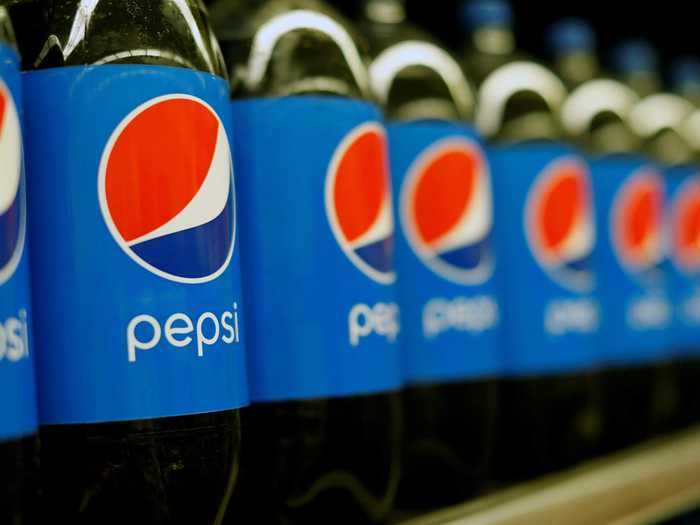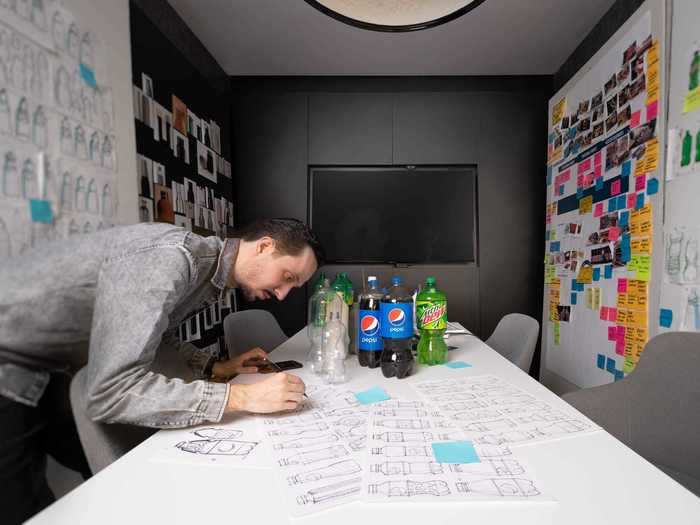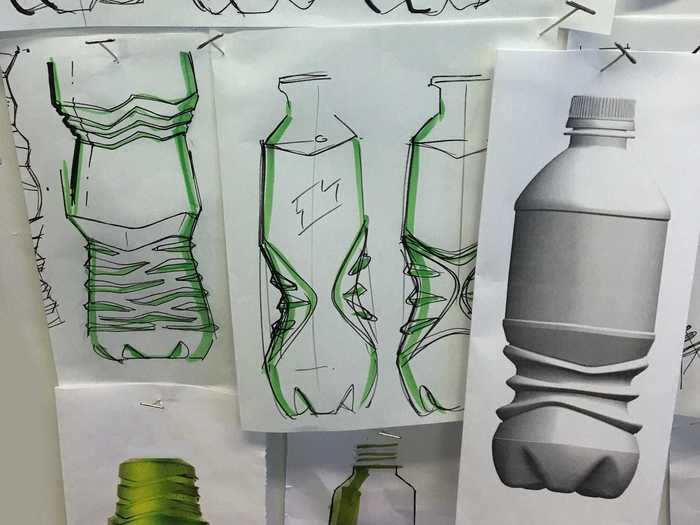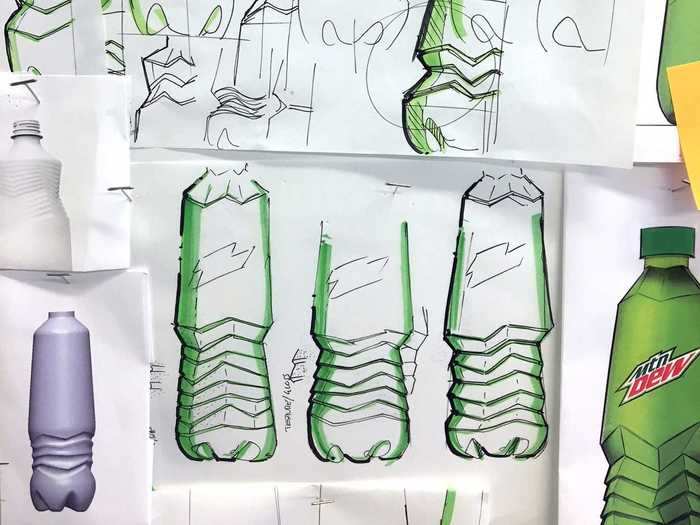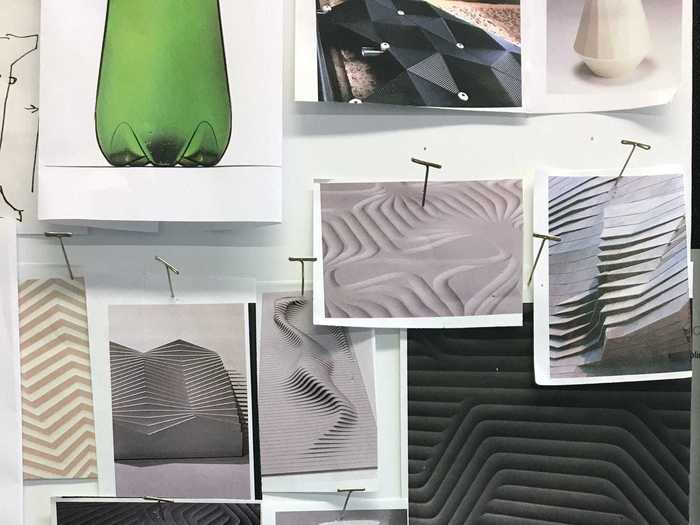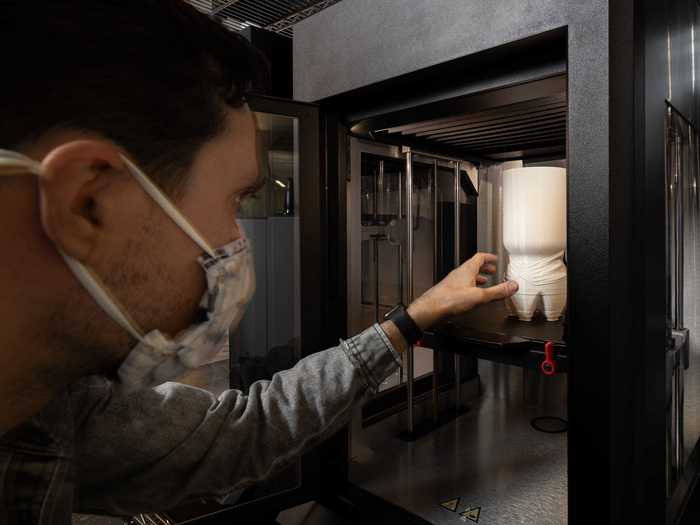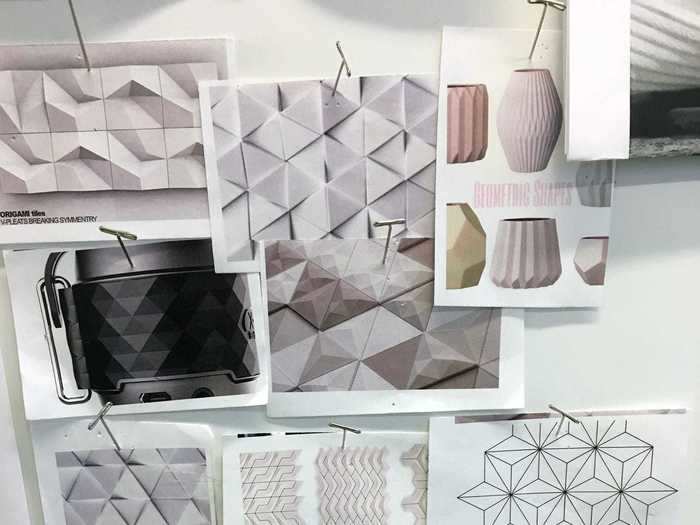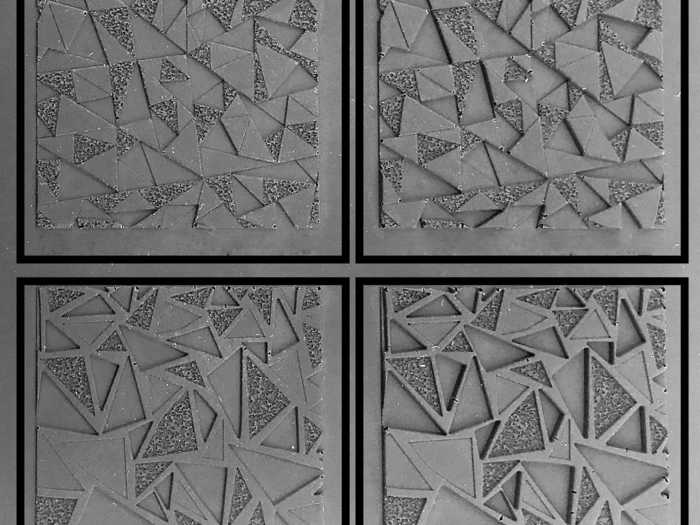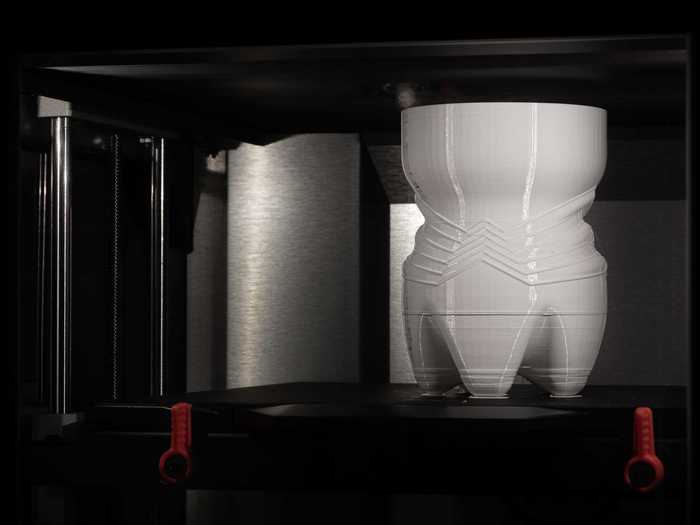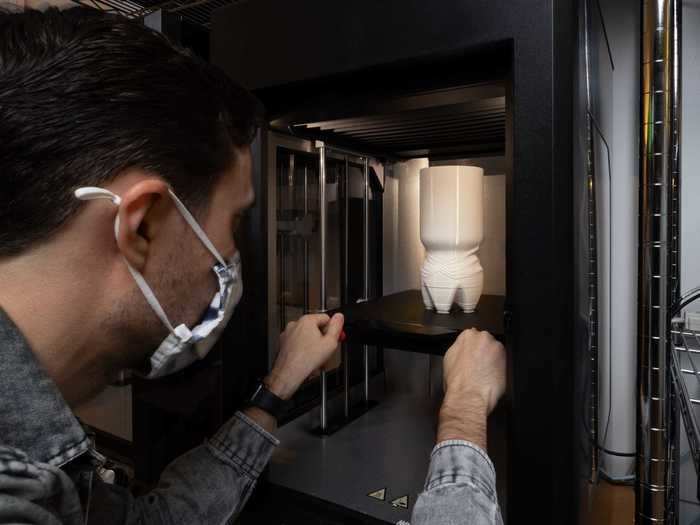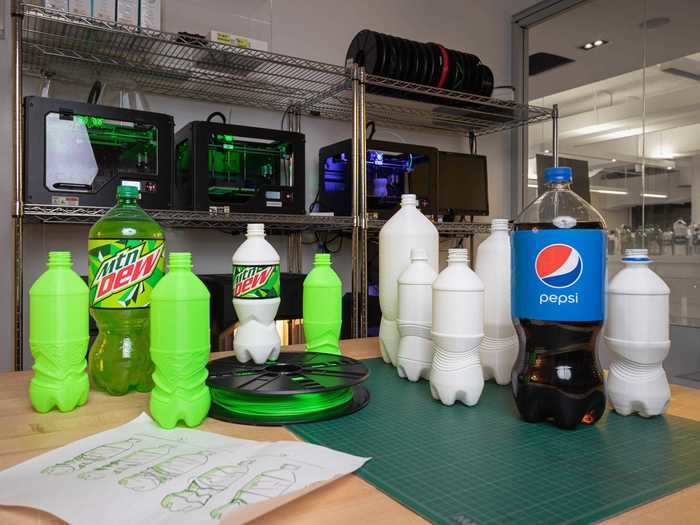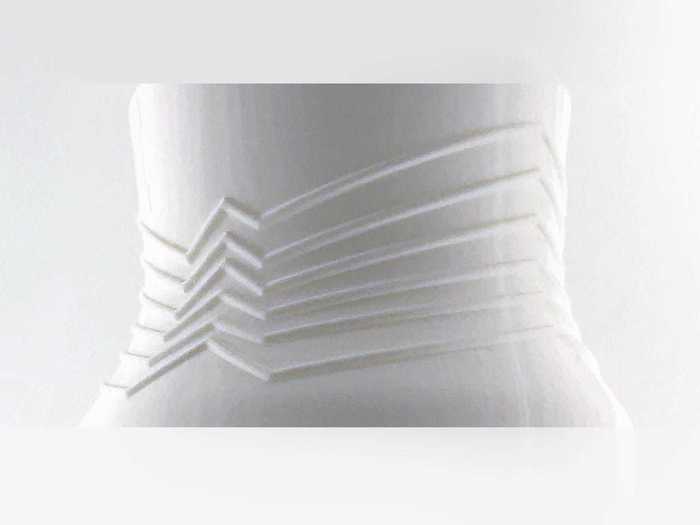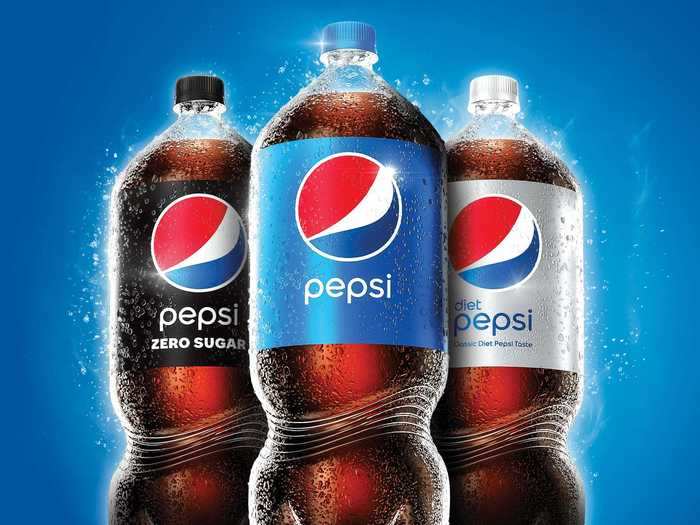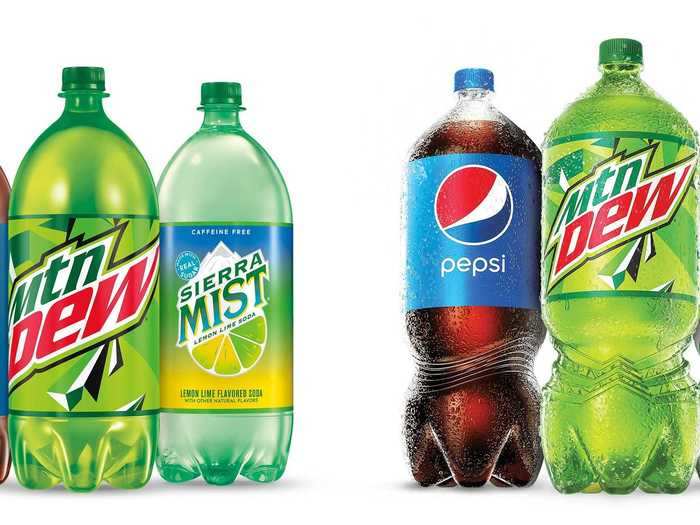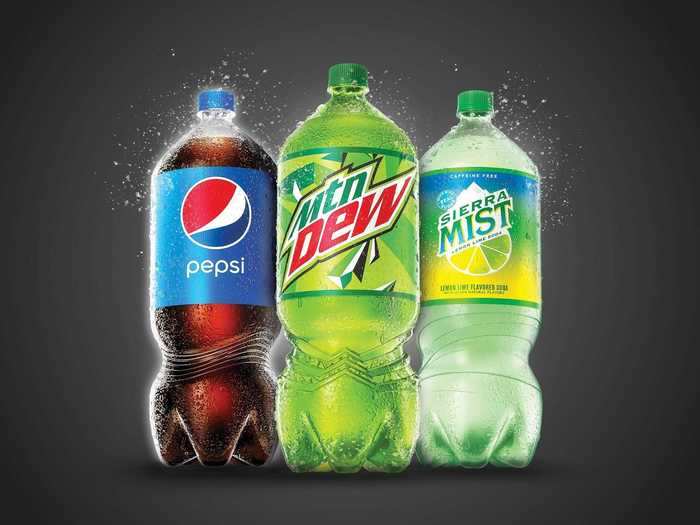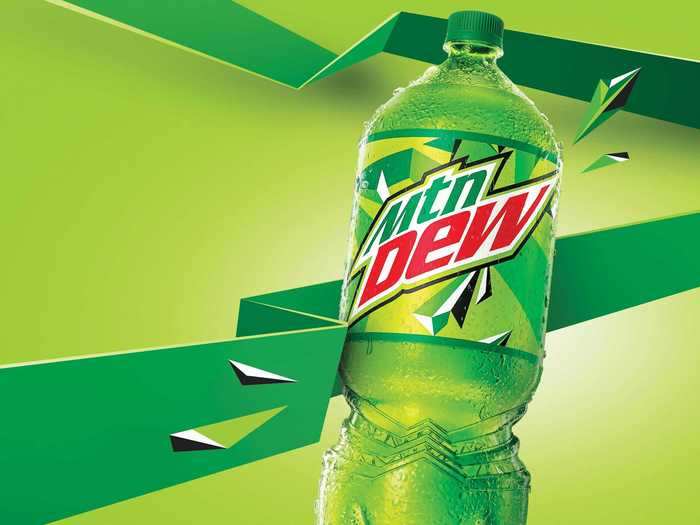New bottle design.PepsiCo
- PepsiCo just redesigned its two liter bottles after 30 years.
- Designers used 3D printers and Oculus VR headsets to complete the designs at home.
- They've been released in some markets, and will rollout over the next few years.
PepsiCo redesigned its two-liter bottles, and it relied more on 3D printing and virtual reality technology than ever before.
In the midst of the two-year redesign project, the coronavirus sent office workers home, but PepsiCo designers had the chance to use 3D printers to create prototypes in their homes. Then, product testing was completed in virtual reality, which may be where the entire industry is heading.
The new two-liter bottles with a slim area to grip have already been released in Chicago, Minneapolis, and St. Paul, and Wisconsin, with rollout to the rest of the US planned over the next few years. Pepsi, Mountain Dew, Schweppes, Crush, and other PepsiCo drink brands will eventually all be sold in this new bottle.
Here's how designers changed the iconic look while working from home.
Two liter Pepsi bottles were first designed in 1970, and updated in the 1990s.
FILE PHOTO: Bottles of Pepsi are pictured at a grocery store in Pasadena
Reuters
Changing the design of a product with 500 million units a year is not easy, and the work to change the bottle officially began in 2018, though designers had been thinking about it much earlier, VP of Innovation and Capabilities for Pepsi Beverage North America Emily Silver told Business Insider.
Design process.
PepsiCo
Changing the shape of the bottle also changes its rigidity and ability to support itself, Mauro Porcini, SVP and chief design officer at PepsiCo told Business Insider. "It's insanely difficult."
Design process.
PepsiCo
Deciding where exactly to put the grip on bottles for easiest pouring was the product of hundreds of hours of research.
Design process.
PepsiCo
A project of this scale in the past would require "a laboratory, a workshop, eventually a company that creates model," Porcini said. It would be "very expensive."
Design process.
PepsiCo
Today, designers can "design from wherever," Porcini said.
Design process.
PepsiCo
While working remotely because of the coronavirus, designers would sketch together in a virtual room.
Design process.
PepsiCo
When the pandemic showed that designers would be working remotely for a long time, they got 3D printers and Oculus virtual reality headsets.
Design process.
PepsiCo
Using at home 3D printers, designers could create molds of the design prototypes.
Design process.
PepsiCo
While VR isn't that common among design studios or in-house designers yet, Porcini says that it's where the industry is headed.
Design process.
PepsiCo
PepsiCo even did some product testing in virtual reality, seeing how consumers react to the design and how they pick it up.
Design process.
PepsiCo
Virtual reality is "not just a development tool, but in the future people will interact with brands in VR. The sooner we can understand VR and what the trends are, the sooner we'll identify opportunities," Porcini said.
Design process.
PepsiCo
The new design is mostly focused on improved ergonomics, or making it easier for consumers to pour from the bottle.
New bottle design.
PepsiCo
In the new design, the grip is 25% slimmer than the circumference on the old bottles, to potentially allow pouring with one hand.
New bottle design.
PepsiCo
The labels are also smaller, and require last plastic use.
New bottle design.
PepsiCo
The grip on each PepsiCo brand is specific to that brand's image, with a lighting bolt-esque design for Mountain Dew.
New bottle design.
PepsiCo

